Reflection Synthesis - 11/12
by Amanda Mickus

1. Community College
1.1. Are community colleges creating lasting terminal degrees or are graduates constantly having to reenroll with labor market shifting in the new economy?
1.2. How can we foster more communication between four-year universities and community colleges?
1.3. I’m curious as to why students don’t visit tutoring services when it is accessible and free. Is it due to scheduling, work, student motivation, or commuting? Or is it because of preference (ex. student s would rather go to office hours, study groups, etc.)?
1.4. I thought the idea of web-based stress intervention was really interesting, since it’s something that in my experience (as a full time student at a 4 year university), there was a lack of availability funding for, so I can imagine how much worse it was/is for a community college campus. I wonder if these types of programs are built individually by the university, or if there is a larger system.
1.5. topics seem very practical and applicable for those at a community college ... overall, seems like it would be most useful for those actually working boots on the ground in a community college setting as a practitioner, instructional designer, student affairs, or admin
1.6. How to help students to be better prepared for the first time learning experience of community colleges? So what the key principles or thinking about curriculum design for developing their academic readiness?
1.7. Why do students in the community college environment appear to struggle more than students at 4 year universities? Why do HBCU's partner up more than community colleges?
2. International Higher Ed
2.1. How might global policy/educational governance compete against state/regional/federal policy? Is postsecondary competition driving quality or driving prices?
2.2. It's also hard to come up with ways to rate quality of teaching when this practice varies within an institution - if the departments are rating their own courses on a different metric without a standardized metric for the whole institution, how then can you participate in a national or even global ranking system?
2.3. More recent issues seem to focus on cultures as defined by countries, but looking back at the older issues, there was maybe more nuance?
2.4. this article made me wonder about the use of the term “global education”, so based on this paper, shall we think of education as intercultural rather than global?
2.5. Since higher education receives supports from companies (business driven), do they affect the common good goal being achieved? How to balance the companies’ will and the education inborn will?
2.6. Does accreditation make it easier or harder to be accepted in to a university? Do international universities partner up with international high schools?
3. Blacks in Higher Ed
3.1. Will expansion, program creation, and university networking manifest through greater equality in the workforce, particularly in tech and healthcare fields?
3.2. Institutional racism, race-based stress, and white privilege are very very real and white people/ non-POC need to recognize this!!
3.3. I think working with outside organizations and getting their buy-in is very important to the support of higher education ventures.
3.4. What’s the key difference between Blacks students and students from other parts of the world? How do their learning characteristics affect the learning design and teaching methodology?
3.5. With continuing gaps in resources and testing, these social and financial inequities has created a fierce pocket of competition among HBCUs where university growth is becoming concentrated to fewer institutions.
3.6. Partnerships between institutions and corporations - what does this mean? How does a partnership with a corporation differ from one with another HE institution? What are the implications?
3.7. What factors are driving more students to some HBCUs, while others suffer from severe decreases in enrollment?
3.8. What is it about HBCUs that guide them to partner up? Are presidents more proactive at these types of institutions?
4. Adult and Continuing Education
4.1. What are the primary characteristics that tend to set adults apart from other demographics when it comes to learning?
4.2. how can higher ed. maximize learning potential of adult learners in the digital age? Should
4.3. What are the roles of faculties or instructors in this situation? Does the role change?
4.4. the assumption that online pedagogy being better for adult learners really interesting
4.5. What type of trainings do these organizations provide for their instructors? Where would this type of research be conducted?
4.6. Adult learners have more respect for teachers who are respectful of adult learners and have more applied experience in their fields. Most professors are top notch universities are not usually practitioner. Would this mean there is a trend that adult learners will favor professors of the practice and favor real-world advice on the subject matter?
4.7. Interest in the article on Education for grandparents in longevity societies
4.8. Major themes/ideas: How adult learners transition into higher education and how adult learners are taught how to self-reflect and gain a sense of cultural pluralism.
4.9. How do adult learners, who may already lack basic critical thinking skills, acquire a sense of self reflection and gain the understanding of cultural pluralism?


